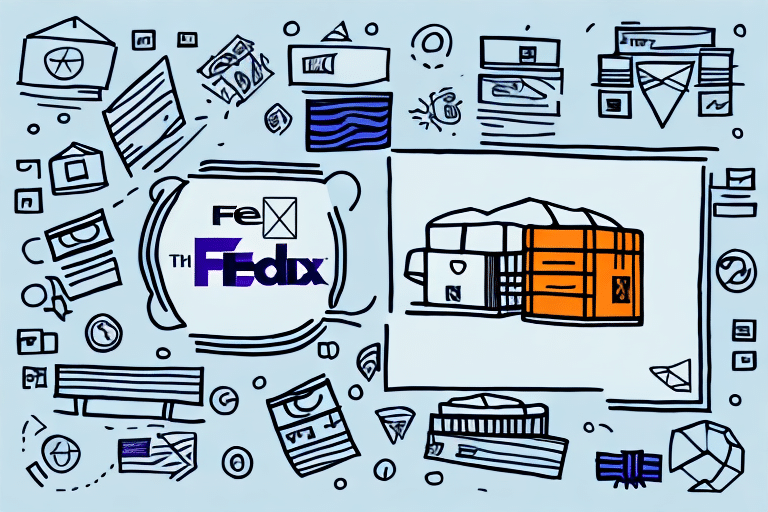What is the UPS Electronic Export Information (EEI) Fee?
The Electronic Export Information (EEI) Fee is a charge implemented by UPS for certain international shipments originating from the United States. This fee is levied for the submission of electronic export documents mandated by the U.S. Customs and Border Protection (CBP). The EEI filing provides detailed information about the shipment's contents, value, destination, and any necessary export licenses or permits.
Purpose and Introduction of the EEI Fee
The EEI Fee was introduced to modernize the export process and enhance the accuracy of export data. Before this fee's implementation, there was a lack of uniformity in filing export documentation, leading to delays, errors, and potential non-compliance with government regulations. The EEI Fee aims to:
- Streamline Export Procedures: By standardizing the submission of export data electronically.
- Enhance National Security: By requiring detailed shipment information, the government can monitor and control the export of sensitive goods and technologies.
- Ensure Fair Competition: The fee helps level the playing field for American businesses by ensuring all exporters comply with the same regulations.
Benefits of Paying the EEI Fee
Paying the EEI Fee offers numerous advantages for exporters:
- Compliance Assurance: Ensures adherence to export regulations, reducing the risk of fines and penalties.
- Shipment Tracking: Facilitates tracking of shipments throughout their journey, allowing for better planning and management.
- Expedited Customs Clearance: EEI-compliant shipments are processed faster through customs, minimizing delays.
- Enhanced Reputation: Demonstrates a commitment to regulatory compliance, boosting credibility within the international trade community.
Responsibilities and Payment Obligations
Who is Responsible for Paying the EEI Fee?
The responsibility for paying the EEI Fee typically falls on the exporter or the shipping company handling the shipment. In most instances, the sender is accountable for the fee. However, depending on the shipment's specifics, the responsibility may be shared or transferred to another party, such as the importer, as agreed upon in the sales contract.
When is the EEI Fee Required?
The EEI Fee is mandatory for shipments that meet certain criteria, including:
- A value exceeding $2,500.
- Relief under Special Use regulations.
- Shipments requiring an export license.
Exporters should consult the Automated Export System (AES) guidelines to determine if their shipment necessitates an EEI filing and fee.
Consequences of Not Paying the EEI Fee
Failure to pay the EEI Fee can lead to significant repercussions, including:
- Shipment Delays or Rejection: Shipments may be held at customs or rejected, causing delays in delivery.
- Fines and Penalties: Non-compliance can result in financial penalties imposed by regulatory authorities.
- Additional Costs: Return or storage fees may be incurred if shipments are rejected or delayed.
- Damage to Business Reputation: Consistent non-compliance can harm a company's standing in the international market.
Calculating and Filing the EEI Fee
How to Calculate the EEI Fee
The EEI Fee varies based on factors such as the shipment's value, weight, and destination. UPS offers an online EEI fee calculator to help exporters estimate the fee for their specific shipment.
Filing the EEI
To file the EEI, exporters must submit the necessary information through the Automated Export System (AES). Required information includes:
- Detailed description of the goods.
- Harmonized System (HS) Code or Export Control Classification Number (ECCN).
- Value of the goods.
- Country of origin and destination.
- End-use and end-user.
Accurate and complete filings are essential to avoid delays and penalties.
Best Practices for EEI Compliance
Maintain Detailed Records
Keeping comprehensive records of all export transactions, including invoices, shipping documents, and EEI filings, is crucial for compliance and auditing purposes.
Accurate Classification of Goods
Correctly classifying goods using the appropriate HS Code or ECCN ensures compliance with export regulations and facilitates smooth processing through customs.
Obtain Necessary Permits and Licenses
Depending on the nature of the goods and the destination country, specific export licenses or permits may be required. Consult the Bureau of Industry and Security (BIS) for guidance on licensing requirements.
Use of Customs Brokers
Engaging a reputable customs broker can simplify the EEI filing process and ensure adherence to all regulatory requirements.
Alternatives to UPS for Paying the EEI Fee
While UPS is a prominent choice for handling EEI fees, exporters have alternatives, including:
- Other Shipping Companies: Companies like FedEx and DHL also offer EEI filing services.
- Customs Brokers: Specialized brokers can manage EEI filings and ensure compliance.
- Export Compliance Specialists: Consultants who provide expertise in navigating export regulations and EEI requirements.
Future Updates and Changes to EEI Fee Regulations
Export regulations and EEI Fee requirements are subject to change based on legislative updates and shifts in international trade policies. To stay informed about future updates:
- Regularly consult the U.S. Customs and Border Protection (CBP) website.
- Subscribe to industry newsletters and updates from reputable trade organizations.
- Engage with export compliance professionals to receive tailored advice and updates.
Conclusion
Understanding and complying with the UPS Electronic Export Information (EEI) Fee is essential for any business involved in exporting goods from the United States. By paying the fee and adhering to export regulations, exporters can ensure smooth and efficient shipment processes, avoid costly penalties, and maintain a strong reputation in the international market. Implementing best practices, such as accurate record-keeping and correct product classification, will further enhance compliance and streamline the export process.






















